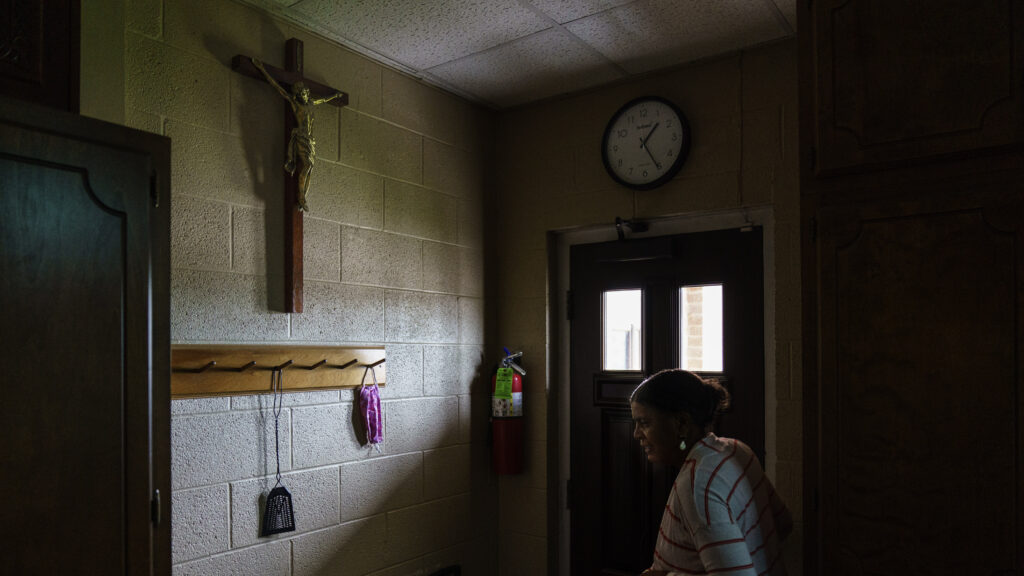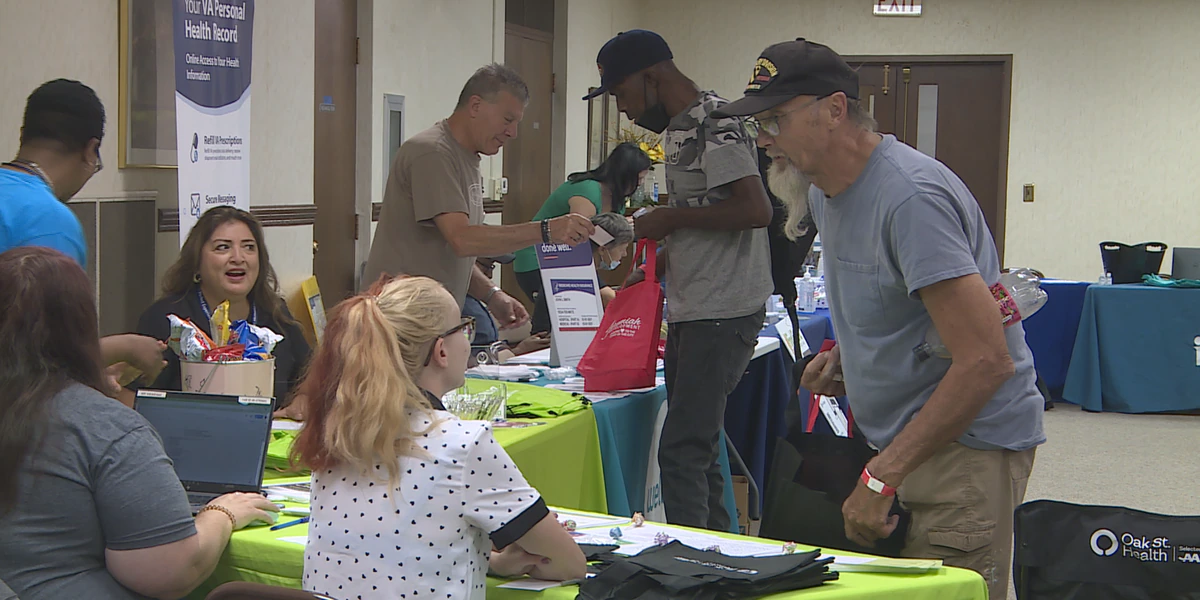[ad_1]
For as long as Daniel McKizzie can remember, church has been part of his life. McKizzie — Reverend McKizzie to his congregation — is the pastor and founder of New Creation Baptist Church in Minneapolis, Minn. A new study suggests that church may be part of his long-term health as well.
Cardiovascular disease is the leading cause of death among all Americans, and even more so among Black Americans, who are 30% more likely than any other group to die from cardiovascular disease. This disparity is exacerbated by differential access to health care and other established health inequalities that persist across the Black community.
A study published Wednesday in the Journal of the American Heart Association indicates that higher levels of religious involvement or spirituality is linked to improved cardiovascular health among Black Americans.
advertisement
This work is part of the larger Jackson Heart Study, a landmark community-based investigation of environmental and genetic factors associated with cardiovascular disease among Black Americans that was started in 1998.
A team of researchers from the Jackson Heart Study worked with more than half of its 5,306 participants to understand their religiosity, spirituality, and cardiovascular health. Higher levels of religiosity and spirituality were associated with better scores on the American Heart Association’s Life’s Simple Seven (LS7) components — the top risk factors for heart disease, such as cigarette smoking, high blood pressure, and inactivity.
advertisement
“I grew up in the Black church and saw firsthand how our congregation members were affected by heart disease and its risk factors,” lead study author LaPrincess Brewer, a preventive cardiologist at the Mayo Clinic, told STAT. “And they died prematurely. And that really stuck with me.” She said she wanted to see how religiosity and spirituality might be leveraged to improve the health of Black Americans. The Jackson Heart Study gave the chance to do that, because it is a large study intentionally designed to study heart disease in Black Americans.
Earlier studies have explored the connection between religiosity and cardiovascular disease, but didn’t often dig deeply into it beyond church attendance, said Brewer, who looked also at nontheistic variables like finding one’s inner peace and harmony.
Brewer used her engineering and medical background to help design the Fostering African-American Improvement in Total Health (FAITH) App, a mobile application that uses culturally-informed design to create a platform that let users track their health and other information but also offered educational videos and social networking through a discussion/sharing board.
Over the course of nine months, McKizzie and nearly 3,000 other participants completed the program in two parts. They first used the FAITH app for 10 weeks, along with Fitbits to keep track of lifestyle changes like how many steps they took and how many servings of fruits and vegetables they ate. That was followed by a six-month maintenance period where they followed up with study team members about their progress.
The study measured spirituality using the Daily Spiritual Experience Scale and looked at practices like attending religious services, private prayer, and the use of religious beliefs or practices in adapting to difficult life situations and stressful events, nontheistic practices and total spirituality. Higher rates of religious attendance, prayer, and religious coping were linked to higher likelihood of achieving target physical activity, diet, smoking, blood pressure and Life’s Simple Seven scores.
The follow-up analyses showed that participants using the interventions had higher cardiovascular scores than those in the control group who didn’t and overall higher levels of religiosity and spirituality were associated with achieving target health outcomes.
“I loved the app,” McKizzie said. “We had to get in our 10,000 steps, and our fruits and vegetables and log them. We turned it into a competition. The winner would get a trophy, bragging rights and a gift card.”
Benjamin Doolittle, a pediatric and general internist and medical director of the faculty-resident continuity clinic at Yale New Haven Children’s Hospital, whose research has explored the intersection of medicine and spirituality, spoke with STAT about the premise of the study.
“If someone not only gave you the perfect diet, but fixed the perfect meals for you and did everything for you — it would be a no-brainer. It would be easy. You wouldn’t have to think. But things aren’t perfect. Too often people have to do it alone. Doctors take care of patients one person at a time, and so often still miss pieces. A church intervention draws on this convention and it actually points to the importance of religious community. I’m so pleased that the study was done, and the results don’t surprise me one bit,” he said.
Tracy Balboni, a radiation oncologist and clinical director of the supportive and palliative radiation oncology service at Dana-Farber/Brigham and Women’s Cancer Center, has studied the place and role of spirituality in medicine. Balboni, co-author of “Hostility Towards Hospitality: Spirituality and Professional Socialization within Medicine,” echoes Doolittle’s sentiments regarding the layered cultural influences like religion that can influence health outcomes and the need for providers to consider these in their care efforts and tailor their approaches accordingly.
“Though the cross-sectional nature of the study means the directionality of the associations can’t be determined, the data indicate that religiosity/spirituality track with key heart health predictors, pointing to the need for clinicians to integrate attention to religion/spirituality within efforts to promote heart health,” Balboni said in an email to STAT.
[ad_2]
Source link

